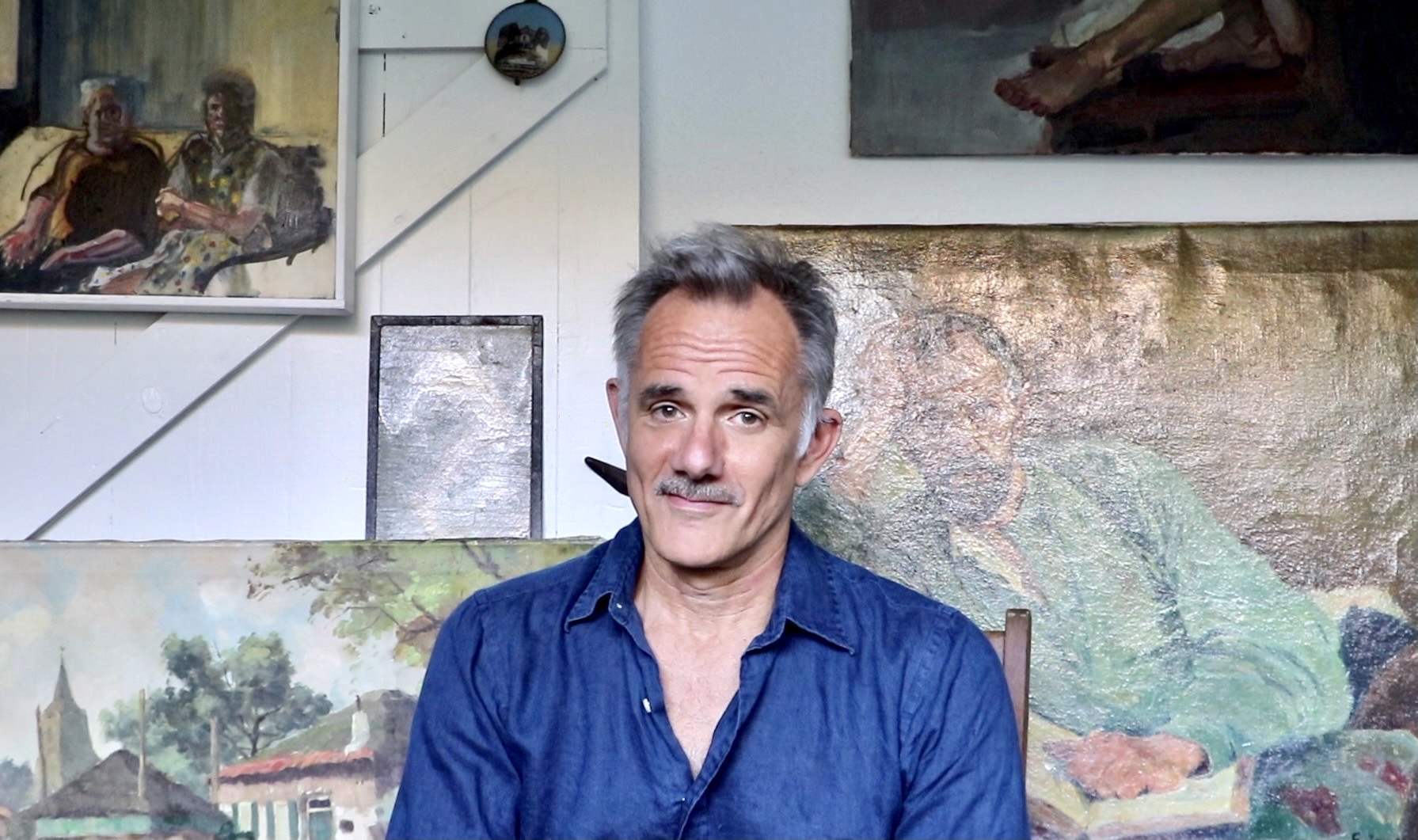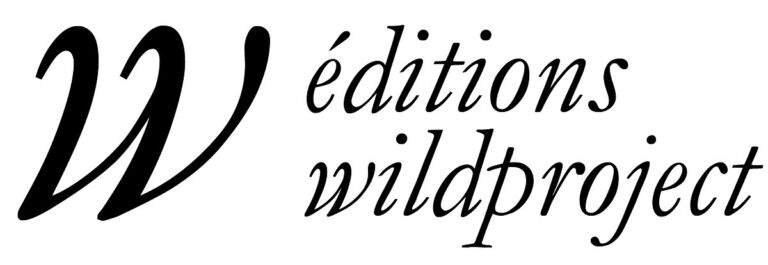Jean-Christophe Cavallin
Researcher, writer
November 2024

- Literature
- San Francisco
“I intend to take advantage of the month spent in shared living with a group of about ten artists in the tranquility of Djerassi to foster a rich conversation and gather as many testimonies as possible on the encounter with the proximate world as an experience of the sacred.”
We live under anesthesia to the destruction of the living. This inexplicable apathy simultaneously estranges us from our emotions and the world. For several years, I have been working on a project of ecological storytelling. The great primordial narratives were not fiction; they were ways of regulating the relationships between the powers of the place and the material and psychic existence of the collective. By securing our intellectual and material life, science and technology have put our imagination out of work. All the imaginative and ritual activity that traditional societies used to counteract their terror of the world and to empathize with the powers of their environments, modern societies now use only to produce fiction and counterfactual worlds.
In Valet Noir. Towards an Ecology of Narrative (2021), I attempted to trace back to the moment when our stories ceased to contribute to the maintenance of our relationship with the world. In Nature, Cradle It. Culture and Trauma (2022), I sought to show that Western culture exhibits all the characteristics of a defense formation that weakens our inscriptions and destroys our belonging to the world around us.
In The Close World. Towards an Ecology of the Sacred, my premise is that, without a return to the Self (or resorting to the Self), there can be no return to the world, its maintenance, or its protection. I would like to attempt to describe and analyze those moments when the false self of our defense formations cracks and the world appears to us beyond its reduction to an object of knowledge. In these “brilliant fragments” (Lévi-Strauss) of everyday life, the intimate dialogue between the great Inside of the Self and the great Outside of the world is reestablished, both of which are foreclosed by our controlled lives – “Miracles occur,” writes Sylvia Plath, “If you dare to call those spasmodic / Tricks of radiance miracles.”
A former student of ENS-Ulm, Jean-Christophe Cavallin is a professor of modern literature at Aix-Marseille University, where he founded the “Ecopoetics and Creation” master’s program in 2017. He is the author of several books on Chateaubriand, Verlaine, and Racine. He has published Valet Noir. Towards an Ecology of Narrative (2021) and Nature, Cradle It. Culture and Trauma (2022) with Éditions Corti. In 2024, he will publish a collection of contemporary bucolic poems, Pastorales, co-written with Violaine Bérot and Florence Debove, with Éditions Wildproject, and Les Enfants de Madame Ô, a children’s book illustrated by Jérémie Moreau, with Albin Michel.
The Close World
Towards an Ecology of the Sacred
To me the meanest flower that blows can give
Thoughts that do often lie too deep for tears.
William Wordsworth
There is a heron in the place where I write. Every morning I watch it, standing still near the shore. It is the heron of the place. If it were to disappear, the entire species would vanish for me in this unique specimen. Every morning I watch it and live in its still body, fixated on the fish, the hold-up of vital functions that the work of thought produces in my own body. In my relationship with this singular generic, I air my deep life. My inner drama plays out in the open air.
If terrestrial life fades, it is because our imagination turns away from reality. This displacement of imaginative work towards virtual or fictional worlds destroys our investments in the neighboring world. We need to once again dedicate ourselves to this world of proximity, to rave about its small community of beings and common things instead of constantly desiring new objects and new products. I will seek to define the experience of the sacred in an ecological way as a simultaneous grasp of the individual and the type—the hen kaì pan (“One and All”) of Hölderlin. My research will bring into dialogue the “epistemology of the sacred” of the late Bateson with the “beings of metamorphosis” of Latour and the “magical world” of De Martino, with the idea of theorizing lived episodes of disturbance and “free play” between manic defense (the self abolishes the world) and paranoid defense (the world abolishes the self). Reinvesting in the close world requires dedicating the experience of the local as a “double capture”: to grasp what seizes us by realizing it in the forms of a place.
Learning that Gregory Bateson (1904-1980) spent the last five years of his life at the New Age sanctuary of the Esalen Institute on the Big Sur coast was almost as moving to me as learning that Ishi, the last Yahi Indian, ended his life at the Museum of Ethnography in San Francisco. The systems theorist did not share the beliefs of the Esalen prophets, but deeply touched by the humanity they were pioneering, he attempted to reconcile their experience of the sacred with the theory of types, that is, the experience of mystery and the exercise of logic. His daughter, Mary Catherine Bateson, published the results of his research posthumously: Angel Fear: Towards an Epistemology of the Sacred.
I wish to visit the Esalen Institute to consult the audio archives of Bateson’s lectures and those who knew him there. In the 1970s, Bateson’s reflections on the notions of relationship and connectivity adopted an ecological paradigm. I would like to understand the logic according to which the category of the sacred proved relevant, even crucial in his view, for thinking about ecology and concern for the Earth.
As an essay in self-theory, my project on the proximate world requires particular attention to lived experiences. I intend to take advantage of the month spent in shared living with a group of about ten artists in the tranquility of Djerassi to foster a rich conversation and gather as many testimonies as possible on the encounter with the proximate world as an experience of the sacred.
In partnership with

Engie Foundation
Created in 1992, the ENGIE Foundation is dedicated to translating the ENGIE Group’s commitment to social solidarity into action. In line with the Group’s business responses to social and environmental challenges, the Foundation supports innovative philanthropic projects that contribute to build a more harmonious and sustainable future. In particular, its actions are in line with the Group’s ambition to contribute to the Sustainable Development Goals (SDGs). Emergency aid for populations affected by disasters, Children’s Aid and Education, Biodiversity & Climate, Access to Energy, the Fight against Poverty and Social Integration are the Foundation’s top priorities, with a focus on caring for life and our planet, and meeting the needs of vulnerable or remote populations.
Every year, the Foundation supports over a hundred projects worldwide. With almost 50% of its projects dedicated to access to renewable and sustainable energies and to biodiversity by 2024, the ENGIE Foundation is committed to the environment year after year. Supporting high-impact projects, participating in the collective effort of Agenda 2030 and conveying ENGIE’s raison d’être: this is what guides the action of the ENGIE Foundation on a daily basis.

Djerassi Resident Artists Program
The mission of the Djerassi Resident Artists Program is to support and enhance the creativity of artists by providing uninterrupted time for work, reflection, and collegial interaction in a setting of great natural beauty, and to preserve the land on which the Program is situated.
Djerassi Resident Artists Program is recognized internationally for its pre-eminence as an artist residency. We strive to provide the best possible residency experience for artists of superior talent from a diverse range of backgrounds and geographical locations.
As stewards of a unique and beautiful property, we also seek to preserve the land and use our facilities wisely and efficiently for maximum benefit to the artists and with the least impact on the environment.

Editions Wildproject
Wildproject is an independent publishing house dedicated to ecology—understood as a cultural and political revolution within modern societies. Since its founding in 2008, the house has championed a vision of ecology as a movement that is simultaneously scientific, social, political, and philosophical. Ecology is viewed as a movement approaching its centenary, with a scope comparable to that of the Renaissance.
